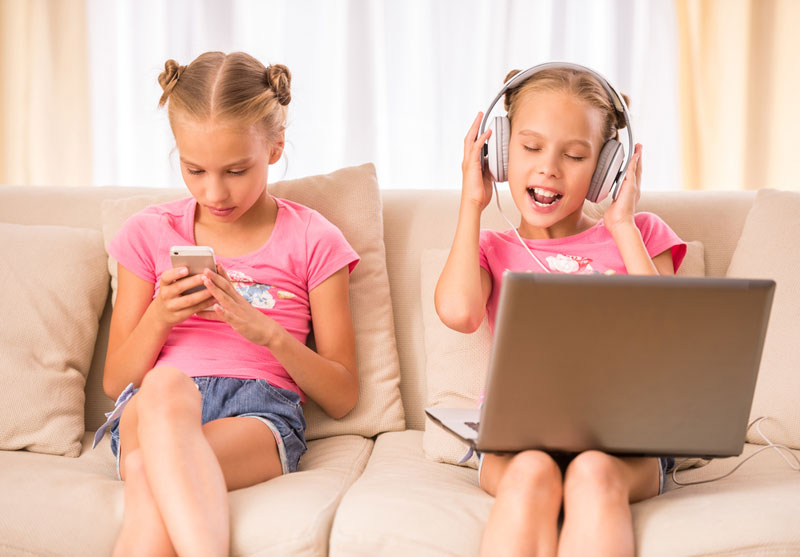Is Digital Multitasking Good for Teens?

Get the world’s most fascinating discoveries delivered straight to your inbox.
You are now subscribed
Your newsletter sign-up was successful
Want to add more newsletters?
Join the club
Get full access to premium articles, exclusive features and a growing list of member rewards.
The more time teens spend multitasking with various tech devices, the worse they tend to perform on academic tests, a small new study suggests.
In the study, the researchers analyzed information from 73 eighth-grade students in Boston, who answered questions about how many hours per week they spent watching TV or videos, listening to music, playing video games, reading electronic media, talking on the phone, and text messaging. The teens were also asked how often they combined these activities, for example, by sending a text message while watching TV
Overall, about 25 percent of the time that the participants were using technology, they were multitasking. Those who spent more time multitasking with technology performed worse on standardized tests of English and math, compared to those who spent less time multitasking, the study found.
The frequent multitaskers also scored lower on tests of working memory (a type of short-term memory that allows people to temporarily store information in their minds and work with it). These teens also tended to be more impulsive than those who spent less time multitasking. [7 Ways to Short-Circuit Kids' Mobile Addiction]
The findings agree with previous studies on adults that linked multitasking on media with worse performance on working-memory tests and higher levels of impulsivity and mind wandering.
It's possible that multitasking makes people more impulsive and affects memory, the researchers said. However, given that these new findings are in relatively young people, the results suggest that multitasking may be a consequence of something more innate, like humans' inherent tendency to be distracted, the researchers said.
"Those most prone to distraction or impulsive behavior might intentionally media-multitask to manage their level of distractibility," the researchers said. "By choosing a distraction they can control [like a form of media], individuals might be less prone to distraction by unpredictable factors," such as a spontaneous distraction, the researchers said.
Get the world’s most fascinating discoveries delivered straight to your inbox.
The study, conducted by researchers at the University of Toronto and the Massachusetts Institute of Technology, was published online Tuesday (May 17) in the journal Psychonomic Bulletin & Review.
Follow Rachael Rettner @RachaelRettner. Follow Live Science @livescience, Facebook & Google+. Original article on Live Science.

Rachael is a Live Science contributor, and was a former channel editor and senior writer for Live Science between 2010 and 2022. She has a master's degree in journalism from New York University's Science, Health and Environmental Reporting Program. She also holds a B.S. in molecular biology and an M.S. in biology from the University of California, San Diego. Her work has appeared in Scienceline, The Washington Post and Scientific American.
 Live Science Plus
Live Science Plus










